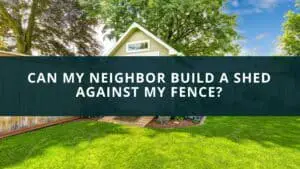Buying a house is one of the most capital-intensive things an average American can take on. There are several factors responsible for this, and it has made it more difficult for many people to afford a house. So, how do people still afford houses?
Most people can afford homes by using home loans. Common types of loans include HomeReady and Home possible loans, USDA mortgages, FHA loans, HFA loans, etc. Some of these loans require a down payment and the best way to save for that is to cut living costs, pay off your debts, and get a side job.
Beyond saving, you can also get the down payment by getting donations and gifts from your family members, especially your parents. Here, we discuss how people afford houses.
Quick navigation
Average Cost of Homes in the US
The average cost of a house in the US is between $300,000 and $400,000. Although some areas have cheaper homes, the average home in the US is on the high side. This makes buying a house quite challenging for most people. Beyond the cost of buying the house, most people still have other expenses they have to pay. There are rents, student loans, personal debts, living expenses, and more. Anyone trying to buy a house still has to pay a down payment that could be up to 20%. All these make it difficult for many to afford a house.
How to Save For Down Payment
The most difficult part of buying a house is getting the down payment. Down payments are quite costly, and getting this lump sum can be challenging. If you’re planning to buy a property, here are tips for saving for down payments:
1. Live Below Your Means
If you’re planning to buy a house, you must be ready to live well below your means to save for a down payment. This can be difficult if you’re already on a low income. So, it might require cutting out as many luxuries as possible and saving money. Luxuries such as gym membership, cable subscriptions, etc., are indulgencies you may have to cut. With the high gas fees, you may also have to leave your car and take more public transportation. The average US household spends over $2,000 on entertainment. This makes it an area where you can cut costs and save. You can also save money by eating home-cooked meals rather than eating out most of the time.
2. Pay Off Debt
Not having debt already puts you one step ahead when trying to get a mortgage. So, it improves your credit score and lowers your debt-to-income ratio, putting you in a better position to negotiate the kind of mortgage you want. So, you should start by trying to pay off your debts. Even if you’re unable to pay it off yet, you should have a payoff plan. The number one debt for most first-time home buyer’s student debt. But there could be others, such as car loans and other personal debt. It’s best to pay off as much of your debt as before buying a house. But you should also try not to incur any unnecessary debt to start with.
3. Get a Side Job
Another way to save for down payments which enable you to afford a property is to have a side job. In a world where working remotely has become common, the gig economy has become popular too, and this is one of the ways to make the extra income you can save towards buying a house. With the current labor shortage, there are several jobs you can do as a freelancer. You only have to find something that matches your skill sets without affecting your actual job. With a side job, you can save enough for the down payment without even touching your main source of income.
4. Accept Gift from Family
One of the ways several people have been able to afford homes is by receiving donations and gifts of cash from family. This has helped many people to afford the necessary down payment. If you have family members willing to help, you can take advantage of this.
Type of Home Loans
In order to afford a house, you’ll most likely need a loan. Several home loans are specifically meant for first-time homebuyers who can’t afford to own a home without these loans. Most first-time homeowners can afford homes by using these options. They include:
1. HomeReady and Home Possible Loans
The first option for most homeowners is the Fannie Mae and Freddie Mac loans. These loans have a low down payment and less strict credit score requirement. So, it’s easy to raise the down payment for this house through gift, savings, or a personal loan. These loans also allow the home seller to pay up to 3% of the closing cost. So, it’s advisable for anyone using this loan to negotiate with the seller to cover part of the closing fees. The private mortgage insurance on this loan is also much lower than conventional loans. Thus, they’re one of the best options to buy a property. In addition, these loans make allowances for applicants who have low incomes. However, depending on your location, there’s usually a limit on the property’s value you can buy with this loan.
2. USDA Mortgages
If you’re buying homes in a rural area, the single-family housing guaranteed loan program might be a good choice to try. It allows you to buy homes without having any down payment. But you have to buy in USDA approved rural areas. Check the USDA eligibility map to see if the house you want to buy is eligible. The monthly payments are usually very low, but there are conditions regarding income, credit score, and place of work.
3. FHA Loans
The Federal Housing Administration loans are good for buyers with high debt or lower credit scores. It’s quite easy to qualify for this type of loan too, and it’s the most popular type of loan for those seeking low down payment mortgages.
4. HFA Loans
The Housing Finance Authorities of States and locals offer this loan, and it’s usually a conventional mortgage. However, the down payment is usually low, and you can further use down payment assistance to reduce the cost of buying upfront. The eligibility requirement varies based on the program, but the credit score must be at least 620.
Other loans include:
- Down payment assistance programs
- Mortgage credit certificates
- Housing choice voucher program
- Good Neighbor Next Door
- VA Home Loans.
In Conclusion
Homes are quite costly, and saving for a down payment can be challenging. But several people can still take advantage of various loans, especially those meant for first-time home buyers. Even with that, it still requires sacrifices to save for a down payment unless you get donations.



